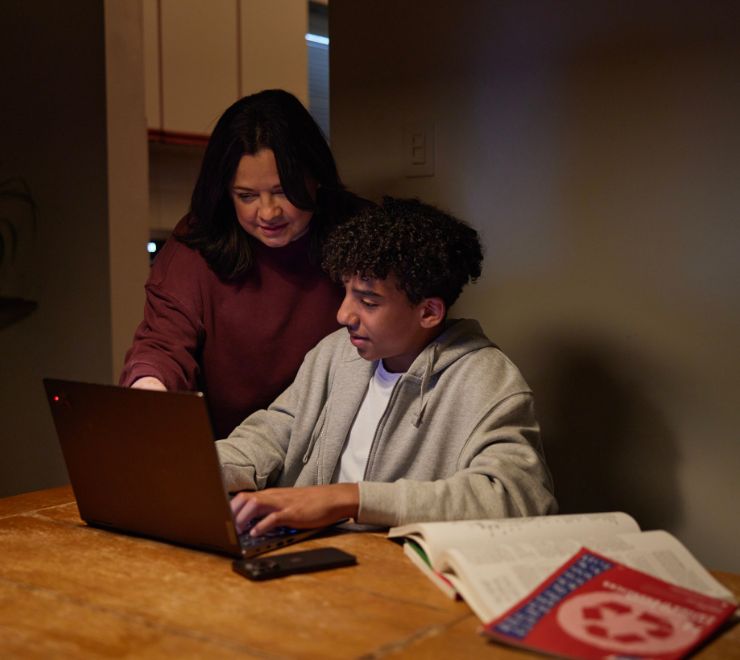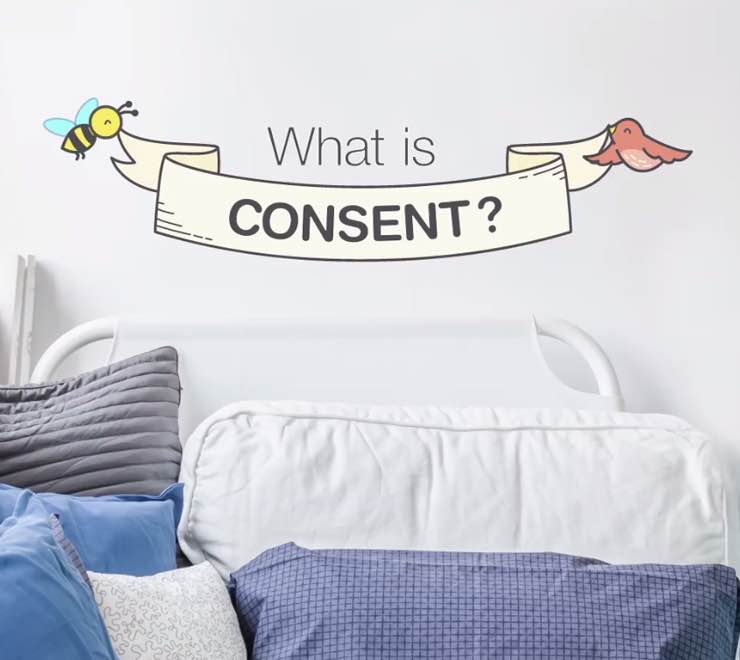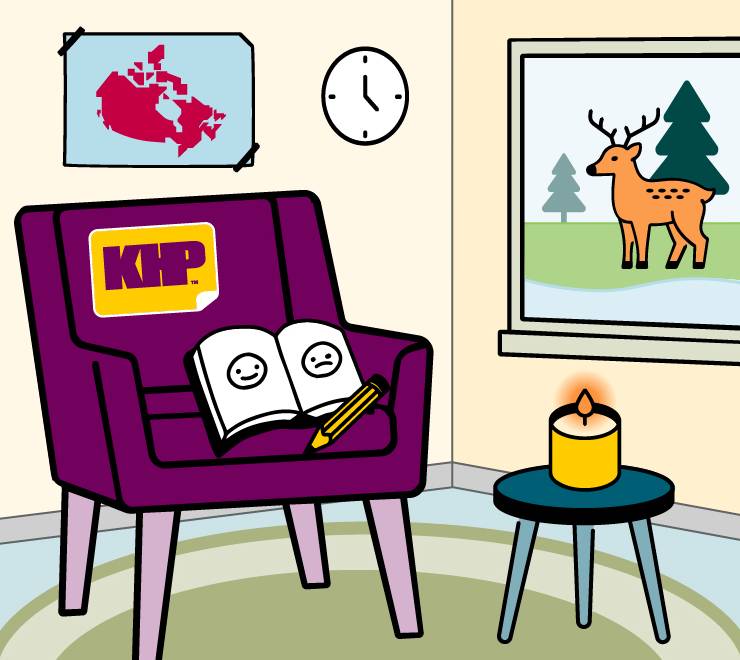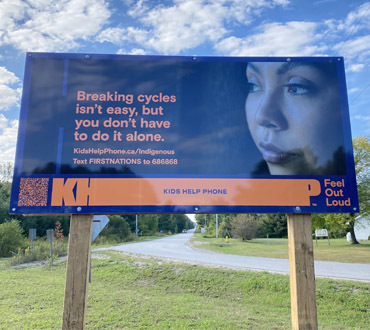Kids Help Phone shares ways young people can identify sexual harassment in their daily lives.
What is sexual harassment?
Sexual harassment is legally defined as any unwanted verbal or physical conduct of a sexual nature. It can make people feel unsafe, embarrassed, offended or intimidated. Sexual harassment can take place any time, anywhere. Even when you have an understanding of what the legal definition of sexual harassment is, recognizing it in your everyday life can sometimes be challenging.
Why is sexual harassment sometimes hard to recognize?
Sexual harassment is sometimes hard to recognize because certain behaviour and language are normalized in our society. Sometimes, harmful actions, behaviour and comments are so common they appear to be acceptable in everyday life. It’s important to remember that anything that makes you feel unsafe, embarrassed, offended or intimidated is never OK.
What does sexual harassment look like?
Sexual harassment is always wrong, regardless of how common it seems or how often it happens. You may experience it without even recognizing it as sexual harassment.
Some examples of more common types of sexual harassment include:
- Catcalling: this is when someone makes inappropriate sexual comments or gestures (e.g. whistling) as someone else is walking by. It’s never OK to objectify or put someone down on the basis of their gender or appearance. Catcalling can make people walking down the street feel afraid, intimidated and offended.
- Spreading sexual rumours: whether online or in person, spreading sexual rumours about someone is never OK (e.g. learning that a peer had sex and spreading the news with others at school/work). Spreading these types of rumours can damage a person’s reputation and negatively affect their self-esteem.
- Unsolicited sexual images: this is when a person sends sexual pictures, cartoons or other sexual images (including online) to a person who doesn’t ask for or want them. Doing so without permission can make the receiver feel violated.
- Leering/staring: this is when a person is constantly looking at someone else in a way that makes them feel uncomfortable or unsafe. It’s especially harmful because it can be hard for others to notice. This may make it more difficult for the person who’s being harassed to speak up.
- Special attention: certain behaviours at school or work are considered sexual harassment. Sexual/romantic comments or gestures can make people feel pressured and uncomfortable (e.g. a supervisor massaging an employee’s shoulders, a teacher asking about a student’s dating relationships, etc.). Threatening to fire or punish someone if they don’t accept sexual advances (known as reprisal) is also not OK.
- Assuming someone wants sexual attention: the assumption that someone is “asking for” sexual attention is never OK, regardless of their gender, occupation or what they’re wearing. A person should never be put down for rejecting sexual attention or standing up to it.
- Stalking: any behaviour that makes someone feel unsafe including unwanted visits, phone calls, texts, emails or letters, leaving gifts or watching someone’s home/school is considered sexual harassment.
Other behaviours that can be considered sexual harassment
Another reason sexual harassment can be hard to recognize is because certain behaviour and language are OK in one situation and not OK in another. The same act could have very different meanings depending on the situation, intention and relationship between the people involved. Here are some examples:
- Asking personal details: it may be OK for someone to ask questions about a person they know well. However, it’s inappropriate for a stranger to ask personal questions or talk about someone else’s sexuality, sex life or body. Remember, you don’t have to share personal details with anyone if you don’t want to.
- Repeated questions: if a person has told someone “no” and they continue to ask the person out on dates, for sexual favours or anything else, it’s sexual harassment. No means no, and when a person is being asked and saying “no” over and over, it can be hard to deal with.
- Sexual jokes: some sexual jokes can be OK (e.g. between friends who have said they’re OK with this type of humour). In certain places, it’s not OK to make these jokes, like in class or at work. Asking someone’s consent to tell a sexual joke is just as important as asking for consent for any other sexual activity.
- Attention: attention can make a person feel nice and special — depending on the situation. Too much or unwanted attention can be irritating, hurtful, demeaning and disrespectful. If you feel uncomfortable, it’s OK to tell the person to stop or walk away.
Sexual harassment comes in different forms and can sometimes be hard to identify. You should never feel pressured to shrug off sexual harassment and accept it. It’s important to remember anything that makes you feel uncomfortable, embarrassed or sexualized in a way you don’t like is considered sexual harassment and is not OK.
Tarana Burke is the founder and director of Just Be, Inc. and the creator of the #MeToo movement. Kids Help Phone is always there for young people who experience sexual assault and harassment. We stand with everyone who tells their story using #MeToo and offer our support to anyone who needs it.


















